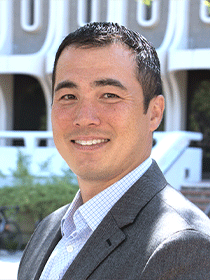
Scott X. Atwood, Ph.D.
Associate Professor, Developmental & Cell Biology
Office 4238 McGaugh Hall
Phone: (949) 824-4346
The Atwood lab is interested in how the immune system influences epidermal cell fate and cancer. We use mouse and human models of epidermal homeostasis and basal cell carcinoma, combined with single cell RNA-sequencing technologies, to define how the immune system influences cellular states, identifies dysfunctional cells, and eradicates oncogenic growths. The long-term goals of our research are to develop human skin organoids that faithfully mimic in vivo responses and to develop strategies to activate immune-mediated tumor suppression.
Defining the immunogenicity of basal cell carcinoma.
Traditionally thought to be a “cold” cancer that does not readily incite an immune response, it is not surprising that basal cell carcinoma shows a variable response to immunotherapy. Using single cell RNA-sequencing approaches and analyzing cell-cell communication in late-stage cancers, we discovered a high ratio of memory B cells to macrophages may predict response to checkpoint immunotherapy. We are currently exploring ways to elicit a larger immune response and improve ways to target tumor-immune interactions to suppress tumor growth.
Defining how the immune system modulates tumor regression during homeostasis.
Phenotypically normal aged skin is often highly mutated with alterations in oncogenes and tumor suppressors that would induce tumor growth in mice. How skin prevents most tumor clones from growing past tissue boundaries remains unknown. We are currently using a mouse model of basal cell carcinoma to define how the immune system monitors for tumor clones and elicits an immune response to eradicate oncogenic outgrowths. Characterizing tumor-derived signals that suppress the immune system and defining the mechanism of T cell-induced tumor inhibition are active areas of investigation.
IFI Research Focus Area(s): Cancer Immunology and Immunotherapy
carcinoma, immunity